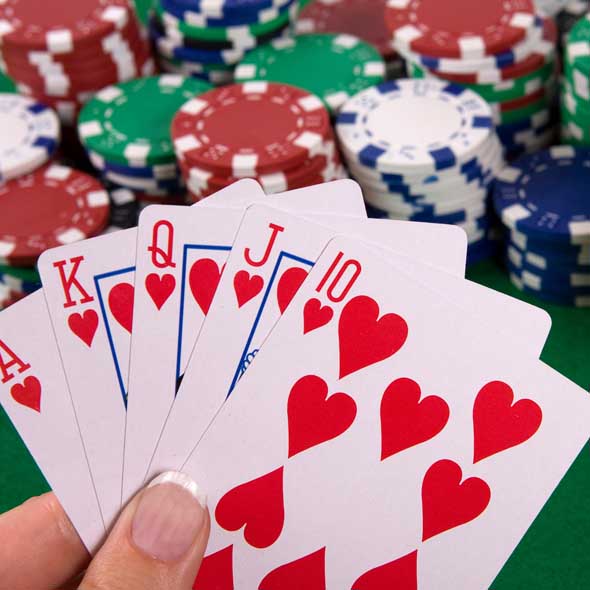Winning Poker As a Tight Passive Player
 We’ve all seen them at the table before, the guy folds hand after hand then suddenly out of nowhere he raises four times the big blind. Two callers. Along comes the flop, the guy whose been waiting bets small, gets re-raised and folds. Wow, after all that time you would think he’d be ready to play a hand. So how does one actually play winning poker as a tight passive player? Let’s find out.
We’ve all seen them at the table before, the guy folds hand after hand then suddenly out of nowhere he raises four times the big blind. Two callers. Along comes the flop, the guy whose been waiting bets small, gets re-raised and folds. Wow, after all that time you would think he’d be ready to play a hand. So how does one actually play winning poker as a tight passive player? Let’s find out.
First we’ll analyze the hand above. In most cases the tight passive player was holding something like Ace King or Ace Queen before the flop. The flop came blank, blank, blank leaving our tight passive without a pair or a draw to go after. The initial bet was simply a continuation bet to try and scare away the additional two callers. When he was raised, he knew he was beat and needed to wait for the next hand to win some chips. So was the play actually all that wrong, or was it just setting up for something better?
The only real way to be a winning tight passive player is by setting up your opponents for big pot situations. Any player at the table who is paying attention should notice that you’re playing tight based on the fact that you’re rarely playing any hands. To earn the title of passive you are going to have to fold after raising before the flop, or surrendering hands where an aggressor would continue betting.
The method of playing tight passive can actually save you from losing chips that an aggressor may not be able to avoid. In the situation described above, the play can only be deemed good or bad if we know what kinds of opponents we had in the hand. For the sake of argument we’ll assume they were loose aggressors who play a lot of pots with a variety of hands, in which case it’s a good laydown.
So the plan here is to set up one of these loose aggressors for a big blow to their stack, and a possible double up. Once you have an opponent marked as being a loose aggressive player who loves to re-raise your bets, you’re ready to get started. The loose aggressor is playing off of what is known as “bet equity” where he’s assuming that you’ll fold the majority of the time he bets. His large raise is leaving a good amount of chips on the table. You’ll need to play a made hand in a similar manner to that of the Ace King that didn’t catch. Pocket Aces or Kings would be perfect for this, as heads up they’re roughly 80{0989c6fb5a0d5607144dc359de209f00f3efd60096fb6cc56964b3971e790ff9} to beat out any other hand. If there’s a possible made straight or flush, you’ll have to lay it down, but if not you should be good to go.
Make your raise pre-flop just as you did before. Now make what looks like a continuation bet on the flop. When your opponent re-raises your bet you have two options – smooth call then bet again on the turn, which may signal to him you have a strong hand or gives him a chance to try and outdraw you, or you re-raise his bet. If there’s enough money in the pot your opponent will more than likely call, giving you an excellent shot at doubling up. If he was just testing the waters, he’ll fold. Either way you take down a nice sized pot.
Now this will not be winning poker strategy if you push with a hand like Ace King without pairing the board. You’re only about 24{0989c6fb5a0d5607144dc359de209f00f3efd60096fb6cc56964b3971e790ff9} to catch by the river, meaning if your opponent even has a pair of threes he’ll be taking down the pot every 3 out of 4 times. You only want to make this play with a strong hand when you have the right opponents at the table. If you don’t get paid off for your play, than you’re not playing winning poker as a tight passive player.
Remember, you can switch gears later on in the match as well, and you will in most cases catch your opponents off guard, adding to your stack and taking away from theirs.